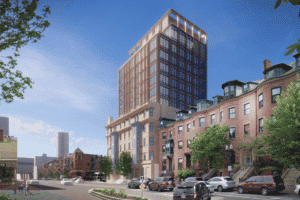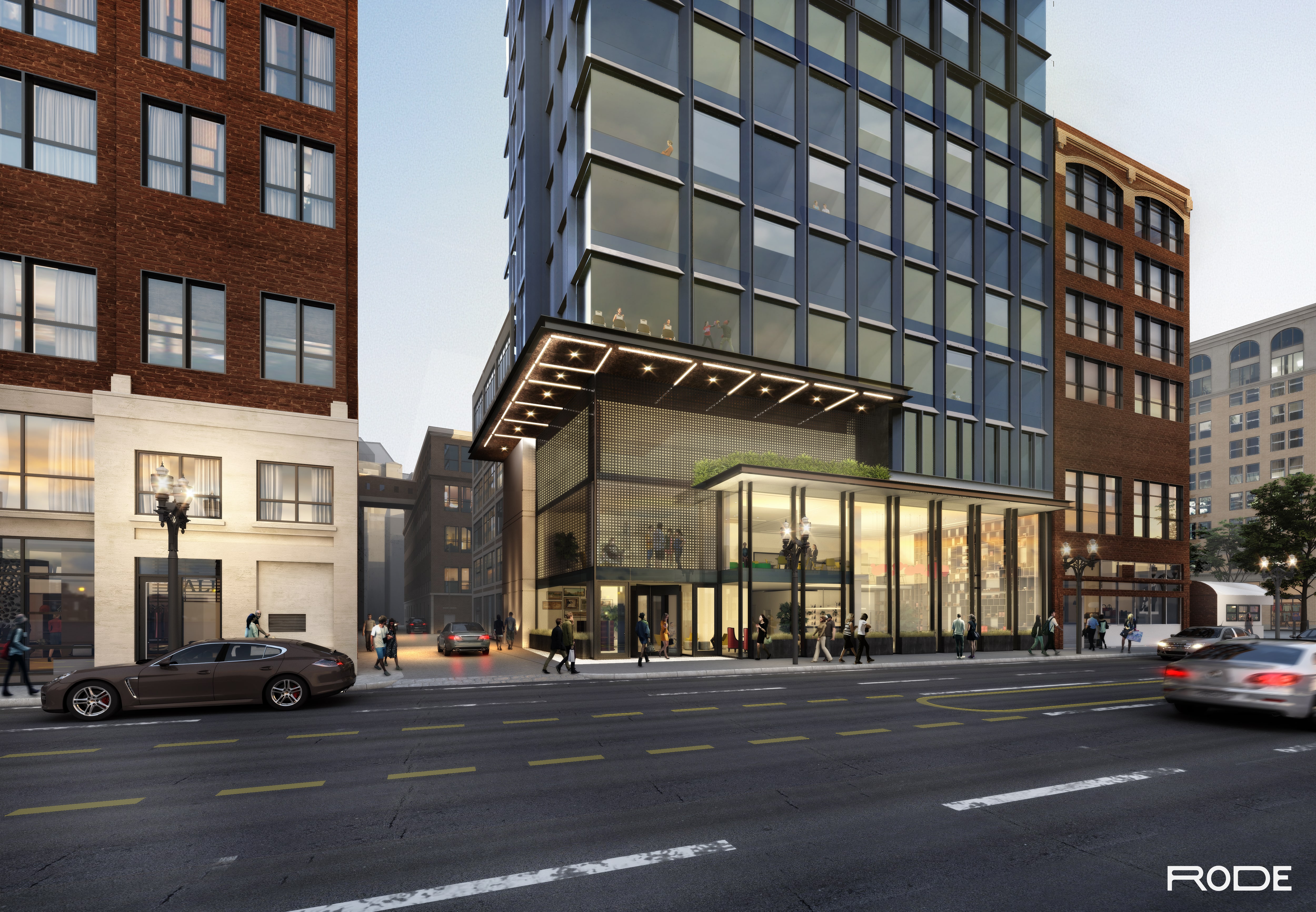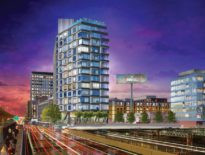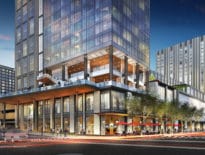
As long as hotels are relatively small and not a “prototypical box hotel,” anything goes when it comes to defining a “boutique hotel” today, even one like the Alexandria Hotel and its 13-story tower. Image courtesy of CBT Architects.
Sebastian Colella remembers when it was easy to distinguish the difference between “boutique” hotels and “traditional” hotels run by large hospitality companies.
Higher-end boutiques were almost invariably small – usually in the 50- to 100-room range – and independently run. Often, they were tucked into the fabric of a neighborhood, and unique in their exterior and interior designs.
“But the boutique concept has definitely transformed in recent years,” said Colella, a vice president at Boston-based Pinnacle Advisory Group, a hospitality consulting, advisory and asset management firm. “Today, they’re bigger and sometimes run as soft brands by major hotel players. It’s less about size and who owns it and more about unique designs and services.”
In other words, as long as they’re still relatively small and not what Colella describes as “prototypical box hotels,” it’s anything goes when it comes to defining boutique hotels. They’re a hot commodity in Boston’s market these days, where occupancy rates continue to top 80 percent.
The Whitney – a 66-room boutique hotel that includes the original John Jeffries House and a 12,000-square-foot addition at 170 Charles St. on Beacon Hill – is expected to join the ranks of the city’s boutique hotels next month. And more are on the way.
A Rebirth for The Alexandra Hotel
If boutique hotels are now all about unique designs and fitting comfortably and elegantly into the fabric of a neighborhood, the Alexandra Hotel, at the corner of Washington Street and Mass. Ave. in Boston, has a built-in advantage. Initially built in 1875 with a Gothic-style exterior, the 5-story structure has sat vacant for decades now, endured a number of fires and floods. Almost everything except for its distinctive facade has to go, said Tom Calus, a principal at TCR Development, co-developer of the Alexandra along with JB Ventures.
Moving forward, the goal is to save the Gothic exterior by shoring it up and then building anew behind and to the side of it, on a now vacant lot where a new 13-story modern structure will be built.
With 156 guest rooms, a ground-floor restaurant and cafe, the Alexandra will be a hybrid of historic and modern elements, said David Nagahiro, a principal at CBT Architects, the project’s architect.
“The exterior (of the original structure) is a beautiful example of High Victorian Gothic,” he said, adding the new glass-and-metal structure behind it will be “simple and elegant” and serve “very much as a background building.”
Although no decision has been made about what brand the hotel might operate under, the development partners say it most definitely will be marketed as a “boutique” hotel that historically fits into its South End Landmark District surroundings.

Hudson Group is redeveloping a former Leather District nightclub property into a 21-story hotel with 240 guest rooms. Image courtesy of RODE Architects.
New Life for Leather District Site
Can a newly constructed 21-story tower with up to 240 rooms qualify as a “boutique” hotel? Absolutely, said Noam Ron, a partner at Boston-based Hudson Group.
“We 100 percent want a boutique feel,” Ron said. “People are looking for experiences that are less cookie-cutter. They love history and the intimate feel [of an old neighborhood].”
And the Hudson Group, which has a 25-year history of projects in Boston’s Leather District, plans to achieve that by knocking down two interconnected buildings, neither of which are historic, that served for years as home to occasionally rowdy nightclubs that went under the various names of “Splash,” “Bliss” and “News.”
Hoping to start construction next year, Hudson Group is planning to build a “really slender, sleek modern tower“ – and yet one that respects the historic nature of the Leather District, said Ron. The tower will be relatively unobtrusive because it will be built on very small, 4,800-square-foot ground footprint, he noted.
RODE Architects is the designer of the hotel, which will include a cafe and lounge open to the public.
Like the Alexandra, no decision has been made yet on whether to go with a big or small brand hotel operator, but Hudson Group plans to retain ownership of the hotel and maintain it as a boutique-style establishment, Ron said.
And in the Financial District, the owner of 15-19 Congress St. sees better potential for hotel use than housing as a redevelopment of former Fidelity Investments offices. Boston-based Hemisphere Development Group received approval from the Boston Planning and Development Agency on May 16 approved a project change replacing 35 condominiums with a 116-room hotel, including a five-story addition to the 15 Congress St. building.
Email: jayfitzmedia@gmail.com




 |
| 

